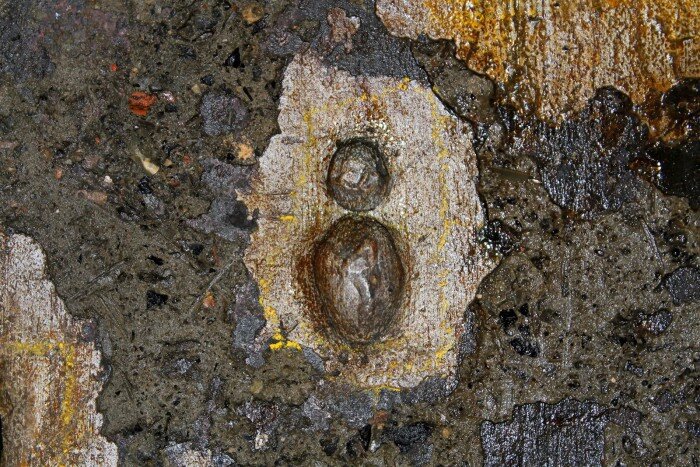
Severe pitting corrosion on steel pile flange
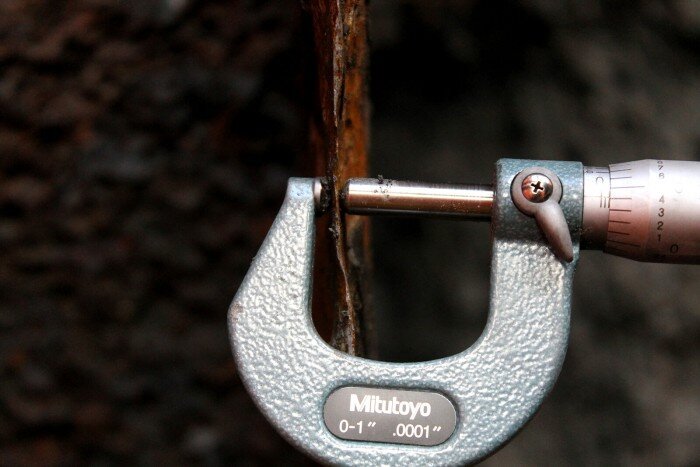
Reduction in steel pile flange thickness due to corrision

Corrosion pit through steel pile flange
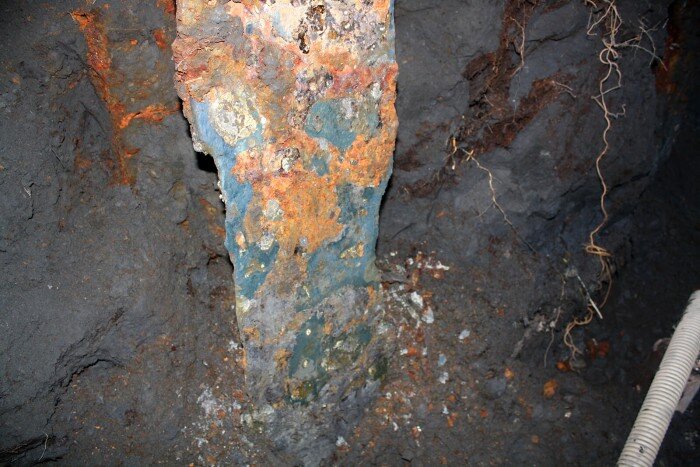
Severely corroded steel pile

Soil resistivity in test pit excavation

Investigation test pit for viewing pile conditions
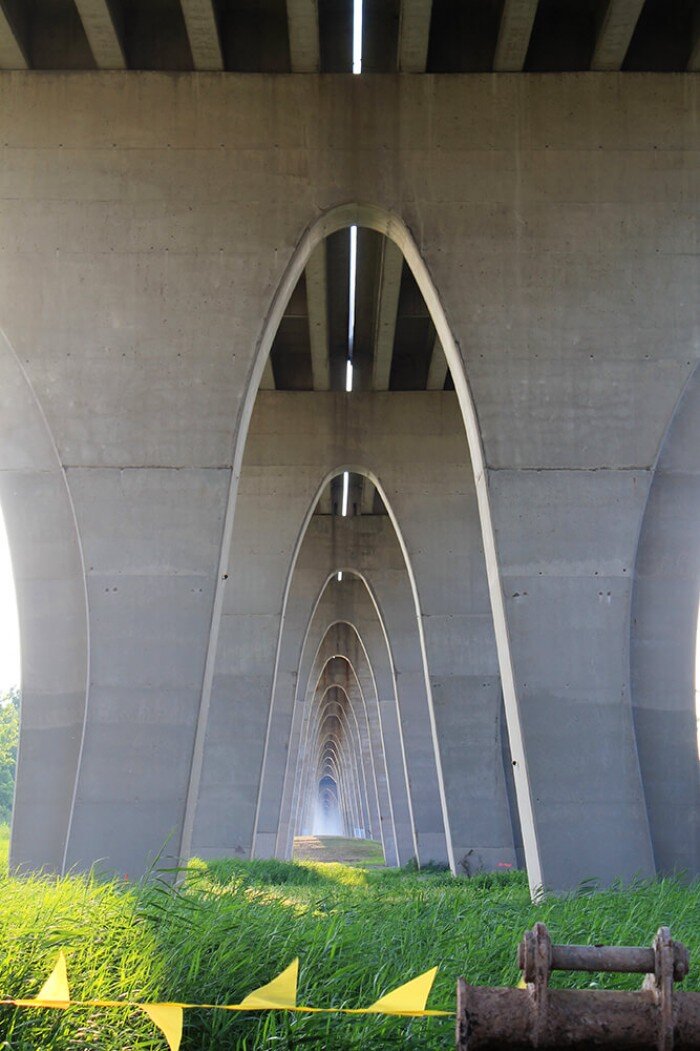
View of bridge pier bents
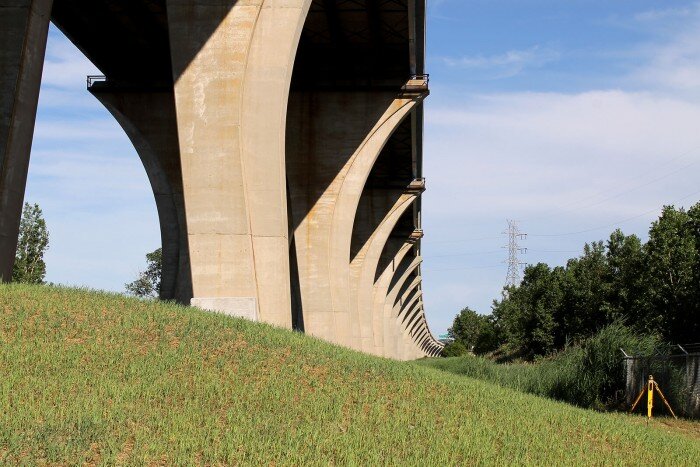
View of bridge approach spans
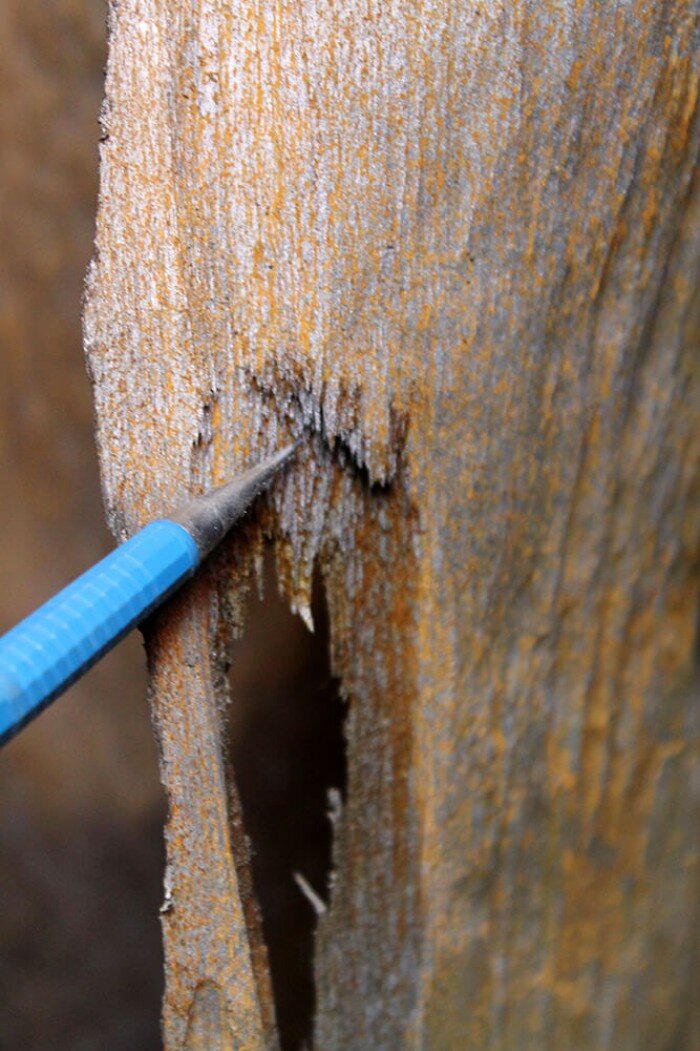
Severe corrosion on pile flange

View of bridge main span
THE 'BUGS' ATE THE BRIDGE
At an age of only 32 years, an interstate bridge in the Upper Midwest carrying approximately 40,000 vehicles per day made national headlines in September of 2013 when one of the support piers moved downward two feet, creating a dramatic “dip” in the bridge superstructure and startling drivers.
When investigators observed extensive corrosion on the failed steel H-piles providing foundational support, engineers from Pivot were retained to determine the corrosion mechanism and provide recommendations for repairs. This included design recommendations to isolate the new foundation system from corrosion by providing a novel inert sleeve system around drilled shafts. Pivot personnel determined that the unique soil conditions in the vicinity of the failed pier promoted microbiologically induced corrosion activity, which drastically accelerated the rate of corrosion and significantly reduced the cross-sectional area of the steel piles.
Pivot personnel also designed and installed a custom corrosion monitoring system at multiple piers along the bridge site, giving the owner the ability to document below-grade corrosion activity. The system is currently being used to collect insightful data on corrosion rates and assess the remaining service life of the structure providing peace of mind to the bridge owner and its 40,000 daily users.
PROJECT SERVICES:
Failure Investigation
Structural Repair Recommendations
Health Monitoring
Half-Cell Potential
Cumulative Corrosion Rate
Nondestructive Testing
Ultrasonics
Corrosion Testing
Half-Cell Potential
Soil Resistivity
VIEW MORE WORK



